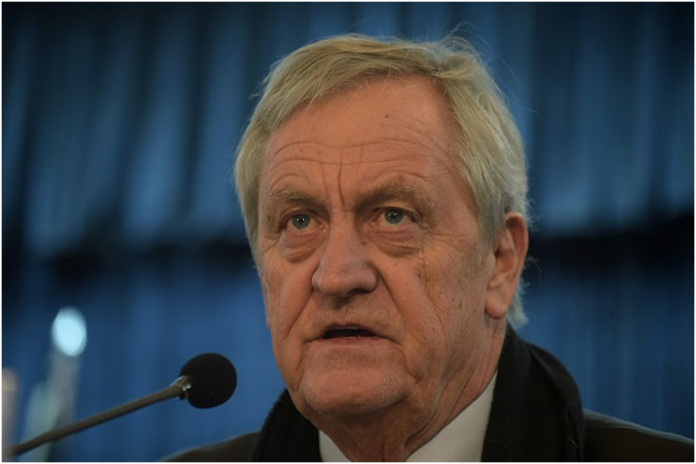The world expects the United Nations to be as above suspicion as Caesar’s wife.
But a worryingly increasing number of United Nations senior officials being expelled from conflict-torn regions and the agency’s offices shut by governments citing undiplomatic acts and meddling in the internal affairs of weak states are clear signs of failing diplomacy by the “Praetorian Guard” of global peace.
On January 2, 2019, Somalia declared the Special Representative of the UN Secretary-General for Somalia and Head of the United Nations Assistance Mission in Somalia (UNSOM), Nicholas Haysom, persona non-grata and asked him to leave the country, charging that the envoy had violated international diplomatic norms by interfering in the State’s freedom and sovereignty.
Last month, Burundi expelled the United Nations human rights office protesting sensational and undiplomatic language after its bureau chief lampooned the country as among “some of the most prolific slaughterhouses of humans in recent times”.
EXPELLED
Burundi also made history as the first country to withdraw from the International Criminal Court in 2017.
And in June 2015, South Sudan expelled the outspoken deputy head of the UN Mission in South Sudan as well as its humanitarian coordinator, UK’s Toby Lanzer.
The expulsion of Haysom reveals the failure of UN diplomacy, again, in Somalia’s complex and protracted conflict situation.
But this is not the first time diplomacy is getting it wrong in Somalia.
In March 1995, the United Nations Operation in Somalia (UNOSOM), established in April 1992 to monitor the first UN-brokered ceasefire of the Somali Civil War and provide humanitarian relief in the country in the early 1990s, shut down when 18 American soldiers were killed in the “Back Hawk Down” saga.
The UN only resumed activities in Somalia five years ago in June 2013 when the United Nations Assistance Mission in Somalia was created to support the newly established Federal Government of Somalia (FGS).
SHABAAB
Haysom’s exit comes as a wake-up call to the agency to steer clear of aggressive activism and maintain magisterial neutrality as an honest broker of peace in Somalia and elsewhere.
What has sparked the current row is a letter that Haysom wrote on December 31, 2018 asking the Somali government, among other things, to explain the legal basis for arresting Mukhtar Robow, the former Al-Shabaab deputy leader who defected from the group in 2017, and who was the main challenger in the South West State elections for regional presidency.
In early December, Mogadishu arrested Robow and banned him from running in the poll, charging that he had not “relinquished his extremist ideologies”.
The UN and human rights lobbies blamed Somalia security forces for 15 deaths and detention of about 300 people in the government’s move to break a three-day protest in Baidoa.
This has bequeathed the UN position in Somalia a strong activist tinge, outshining its clear-minded diplomatic line.
At the one level, this human rights approach seemingly prefers the Federal Government to soften its approach to Al-Shabaab militia, including a moratorium on the execution of its arrested fighters.
EU, UK and Germany have suspended financial aid over Robow’s arrest.
ELECTIONS
At the second level, the UN and human rights activists require the FGS to take a softer approach to regional states in a deepening crisis of federalisation of Somalia, which has remained the main cause of instability in the country.
Inescapably, the fortunes of the UN will continue to be shaped by the mindsets, ideologies and styles of its envoys.
Under the Uganda-born British historian and diplomat, Michael Keating (2016- 2018), UN diplomacy in Somalia appeared to gain traction.
As the face-off between the Federal States and Villa Somalia deepened, Keating’s successors became convinced that “credible and acceptable” presidential elections in federal states can resolve the tensions between Villa Somalia and regional state politicians.
History has shown that elections, like courts, don’t solve conflicts in divided societies, a fact that the ensuing puritanical electoral strategy ignored. A larger strategy is needed.
As grassroots elections got under way from November last year in the run-up to the 2020 vote, the writing was visibly on the wall that the tension between the Federal Government and regional states was spinning out of control.
PROTESTS
In September 2018, the five regional states of Galmudug, Hirshabelle, Jubaland, Puntland and South West announced they had suspended ties with the Federal Government “until it mends its mistakes”.
Local politicians adeptly seized regional elections as a moment to reassert their autonomy, weaken the Federal Government and enhance their powers over and control over resources.
Regional politicians are exploiting the fallout between Mogadishu and the UN to assert their own autonomy.
Somaliland has organised protests in Hargeisa against Mogadishu’s decision to expel the envoy.
As the federalisation crisis deepens, Puntland has closed its borders and banned federal government from entering “its territory” ahead of the presidential elections in January.
UN wonks in Somalia seemed to have downplayed the role of the spillover of geopolitical rivalries in the Middle East to the Horn of Africa, which are having serious ripple effects and complicating Somalia’s search for durable peace.
PEACE
Elections are simply offering an opportunity for rival blocs in the Gulf Cooperation Council dispute between the Saudi Arabia/UAE camp on one side and Qatar on the other to influence the election of leaders in the region and at the federal level aligned to their bloc.
The UN-Somalia tension cast a dark shadow over Somalia’s remarkable recovery process, which has won international support.
In December, the US re-established a permanent diplomatic presence in Somalia.
As the mandate of the UNSOM comes for review in March 2019, the UN chief should appoint a high-profile envoy who understands Somalia’s dynamics, preferably from the region.

By
PETER KAGWANJA






























